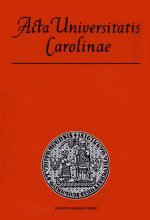Právní a procesní nástupnictví ve správním řízení
Legal and Procedural Succession in Administrative Proceeding
Author(s): Helena PráškováSubject(s): Law, Constitution, Jurisprudence
Published by: Univerzita Karlova v Praze, Nakladatelství Karolinum
Summary/Abstract: Legal and procedural succession in administrative proceedings is not defined by the law, and activities to be pursued, and steps to be taken by administrative bodies, if succession arises, are not governed by legislation. The requirement for procedural succession to occur is the existence of substantive law succession (universal or singular succession). Only such public law rights and duties may pass to a legal successor, which apply to a particular thing, or its properties, or to the relationship between the addressee and a particular thing (acts in rem) if public rights and duties of a property nature are at issue; it is also possible where it is explicitly so provided by a special law (e.g. the passage of liability of a legal entity for an administrative delict under the Protection of Competition Act). Legal succession is, on the other hand, excluded with respect to rights and duties of solely a personal nature. The article deals with the question of whether legal succession may arise due to the fact that the rights and duties at issue are “qualified” to pass to a the legal successor, or whether legal succession should be expressly constituted by the law. Where the capacity to act as a participant in proceedings ceases to exist as a result of universal or singular succession during administrative proceedings, the relevant administrative body must solve the question whether it may continue the proceedings with legal successors of the former participant (should such exist) or whether it is necessary to conduct a modified proceeding (with a reduced number of participants), or whether the proceedings should be discontinued. In the absence of the regulation of procedural succession in administrative law, administrative bodies generally derive the procedural rules from the conception of administrative procedure, from the regulation of procedural succession in other types of procedure and/or from relevant case law. The article circumscribes the commencement of procedural succession, the duty of administrative bodies to consider legal succession by virtue of office and to carry out necessary examination with respect to potential procedural successors, a possibility to suspend proceedings due to that fact, the position of a procedural successor after his joining the proceedings, the impact of the ceased capacity to participate in proceedings upon procedural time-limits, the stages of proceedings where procedural succession is relevant and what the role of procedural succession is at subsequent stages of procedure including administrative execution.
Journal: Acta Universitatis Carolinae Iuridica
- Issue Year: 56/2010
- Issue No: 1
- Page Range: 185-202
- Page Count: 18
- Language: Czech

